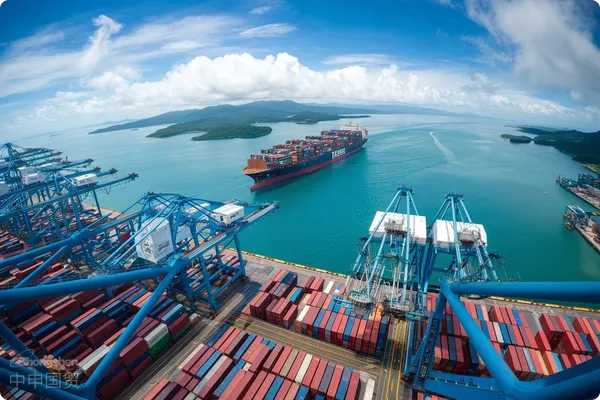- Shanghai Zhongshen International Trade Co., Ltd. - Two decades of trade agency expertise.
- Service Hotline: 139 1787 2118

Recently, the latest news from Evergreen shows that the Netherlands and Indonesia have successively updated their customs rules, putting forward higher requirements for freight documents and sending - receiving information. For practitioners who have shipping plans in these two countries, whether they are traders, freight forwarders or other personnel in related fields, they need to fully understand and abide by the new regulations before shipping to avoid embarrassing situations such as port congestion, additional costs and even cargo delays due to inconsistent documents or missing information.Maritime TransportationAccording to the relevant announcement, since January 14, for all goods destined for the Netherlands or transshipped via the Netherlands, the detailed information of the shipper, consignee, notify party and the optional additional notify party must be clearly stated in the bill of lading and related documents. Specifically, it includes the full company name, detailed address (city name, postal code, country name), contact phone number and email address. In addition, the commodity name corresponding to each item of goods needs to match the corresponding 6 - digit HS or HT CODE. If any information is inaccurate or incomplete, resulting in problems such as subsequent customs inspection or detention, all costs incurred will be borne by the shipper or the relevant responsible party. It is more noteworthy that this time, not only the Dutch customs is strengthening management. In fact, for all cargoes unloaded or transshipped in the European region, the carrier also requires the detailed information of the “sender - receiver - notify” three parties and the 6 - digit HS CODE to enable the customs to identify the goods more efficiently and accurately during data verification.foreign tradeAt the same time, the Indonesian customs also implemented a new version of management regulations for incoming goods since January 10. The focus of this change is that the consignee must provide a 16 - digit NPWP number (Indonesian tax registration number) on the bill of lading. If the bill of lading shows the consignee as “TO ORDER” or “TO ORDER OF BANK”, the notify party must submit this tax number to meet the customs clearance requirements. Once the new regulations come into effect, the strict principle of immediate execution is implemented. Once the carrier or agent fails to fill in correctly due to negligence, or the information is missing or filled in incorrectly, even after arriving in Indonesia, it may face customs clearance obstacles, and any additional costs must also be borne by the responsible party.
These two new regulations have quickly attracted high attention from the industry. Some enterprises pointed out that with the continuous upgrading of international trade compliance requirements, customs inspection of key information such as shippers, consignees and notify parties is becoming more and more rigorous. Whether in EU countries or Southeast Asian markets, customs hope to combat illegal acts such as false declaration and smuggling through more detailed and transparent data management. Especially for emerging economies like Indonesia, on the one hand, it is eager to expand the scale to attract foreign investment, on the other hand, it must strengthen border and tax management, so it is not difficult to understand the strict requirements for customs clearance procedures.
Many cross - border logistics service providers said that they have started to communicate with customers repeatedly to ensure that complete and correct information can be obtained before shipment. Once the bill of lading data cannot be corrected before the ship sails, it is often time - consuming and labor - intensive to remedy later, and even need to pay a relatively expensive change fee or face the risk of the shipping company refusing to load. This kind of situation needs to be paid special attention to at the beginning of the year, because most enterprises may change their orders and trading habits in the new year, and operators may not be familiar enough with the system or document requirements. Once mistakes are made in a hurry, the losses are immeasurable.
As for the future trend, digitalization and informatization may become the norm of cross - border customs management. More and more countries strengthen the traceability and audit of incoming and outgoing goods through electronic single windows, pre - customs declaration platforms or local tax registration. For foreign trade enterprises, they must adapt to this compliance upgrade: on the one hand, improve the accuracy of HS codes, shipper - consignee information, tax numbers and other elements through internal training and process optimization; on the other hand, closely follow the latest laws, regulations and customs announcements of the importing country, and respond and adjust in the shortest time to avoid delays. Especially for the commonly used bill of lading display method like “TO ORDER”, it is becoming more and more sensitive in some countries now. It is necessary to cooperate with customers and freight forwarders to confirm in advance whether it is necessary to switch to a more transparent shipper - consignee mode.import and exportDouble changes in Europe and Southeast Asia, freight forwarders and foreign traders face new tests_Shanghai Zhongshen International Trade Import and Export Agency Service
The Ministry of Finance and the State Taxation Administration have issued a new export tax rebate policy, covering a number of products such as aluminum and copper products, which will come into effect on December 1, 2024. This article analyzes the policy adjustment in detail, analyzes the impact on foreign trade enterprises, and puts forward countermeasures.
December 3, 2024 13:56
Related Recommendations
? 2025. All Rights Reserved. 滬ICP備2023007705號(hào)-2  PSB Record: Shanghai No.31011502009912
PSB Record: Shanghai No.31011502009912









